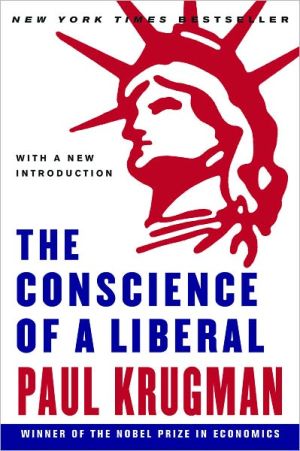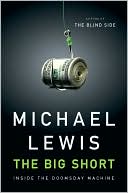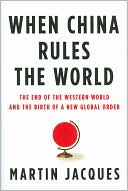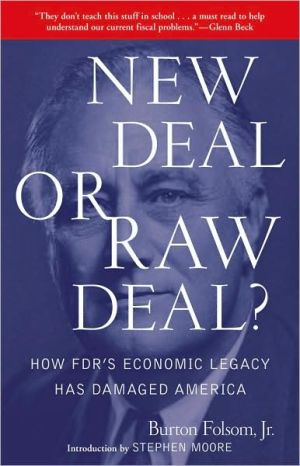The Conscience of a Liberal
"The most consistent and courageous—and unapologetic—liberal partisan in American journalism." —Michael Tomasky, New York Review of Books\ In this "clear, provocative" (Boston Globe) New York Times bestseller, Paul Krugman, today's most widely read economist, examines the past eighty years of American history, from the reforms that tamed the harsh inequality of the Gilded Age and the 1920s to the unraveling of that achievement and the reemergence of immense economic and political inequality...
Search in google:
"The most consistent and courageous—and unapologetic—liberal partisan in American journalism." —Michael Tomasky, New York Review of Books The New York Times - Peter Beinart Repeatedly in The Conscience of a Liberal Mr. Krugman suggests that things we take for granted about the United States economy…are not inevitable at all. Political choices, he argues, not economic laws, have made the United States a nation of the very rich, the very poor and an increasingly fragile middle class…His claims are convincing not only because he discusses complex economic questions with rare lucidity and skill, but also because of who he is. Icon destroyers are most powerful when they hail from within the priestly elite…Readers interested in understanding liberalism's decline and radical conservatism's rise can find better books. But those who turn to Mr. Krugman to understand what's unjust about the United States economy, and why it doesn't have to be this way, will be amply rewarded. And as Democrats seek a rationale not merely for returning to power, but for fundamentally changing—or changing back—the relationship between America's government and its citizens, Mr. Krugman's arguments will prove vital in the months and years ahead.
Introduction to the Paperback Edition ix1 The Way We Were 32 The Long Gilded Age 153 The Great Compression 374 The Politics of the Welfare State 575 The Sixties: A Troubled Prosperity 796 Movement Conservatism 1017 The Great Divergence 1248 The Politics of Inequality 1539 Weapons of Mass Distraction 17310 The New Politics of Equality 19811 The Health Care Imperative 21412 Confronting Inequality 24413 The Conscience of a Liberal 265Notes 275Acknowledgments 285Index 287
\ Peter BeinartRepeatedly in The Conscience of a Liberal Mr. Krugman suggests that things we take for granted about the United States economy…are not inevitable at all. Political choices, he argues, not economic laws, have made the United States a nation of the very rich, the very poor and an increasingly fragile middle class…His claims are convincing not only because he discusses complex economic questions with rare lucidity and skill, but also because of who he is. Icon destroyers are most powerful when they hail from within the priestly elite…Readers interested in understanding liberalism's decline and radical conservatism's rise can find better books. But those who turn to Mr. Krugman to understand what's unjust about the United States economy, and why it doesn't have to be this way, will be amply rewarded. And as Democrats seek a rationale not merely for returning to power, but for fundamentally changing—or changing back—the relationship between America's government and its citizens, Mr. Krugman's arguments will prove vital in the months and years ahead.\ —The New York Times\ \ \ \ \ Publishers WeeklyEconomist and New York Timescolumnist Krugman's stimulating manifesto aims to galvanize today's progressives the way Barry Goldwater's The Conscience of a Conservativedid right-wingers in 1964. Krugman's great theme is economic equality and the liberal politics that support it. "America's post-war middle-class society" was not the automatic product of a free-market economy, he writes, but "was created... by the policies of the Roosevelt Administration." By strengthening labor unions and taxing the rich to fund redistributive programs like Social Security and Medicare, the New Deal consensus narrowed the income gap, lifted the working class out of poverty and made the economy boom. Things went awry, Krugman contends, with the Republican Party's takeover by "movement conservatism," practicing a politics of "deception [and] distraction" to advance the interests of the wealthy. Conservative initiatives to cut taxes for the rich, dismantle social programs and demolish unions, he argues, have led to sharply rising inequality, with the incomes of the wealthiest soaring while those of most workers stagnate. Krugman's accessible, stylishly presented argument deftly combines economic data with social and political analysis; his account of the racial politics driving conservative successes is especially sharp. The result is a compelling historical defense of liberalism and a clarion call for Americans to retake control of their economic destiny. (Oct.)\ Copyright 2007 Reed Business Information\ \ \ Library JournalIn this eloquent defense of liberalism, New York Timesop-ed columnist Krugman (economics; Princeton Univ.; The Great Unraveling) drafts a blueprint for progressive political change. His central theme is that current liberals are actually politically conservative because they want to preserve and expand upon the effective policies of Roosevelt's New Deal. Conversely, the Republican Party, in his view, has today been taken over by "movement conservatives" whose chief goal is to dismantle the New Deal. Arguing that trends are shifting in favor of liberal and progressive approaches to governing, Krugman provides a perceptive critique of why Clinton's 1993 health insurance proposal failed and how liberals can avoid the same mistakes. His themes are similar to those expressed by Douglas Massey in Return of the "L" Wordand Robert Reich in Reason, but Krugman is better able to explain his views to a general readership. The book will be in great demand in both public and academic libraries and may even lead some readers to Krugman's more scholarly writings. [See Prepub Alert, LJ6/1/07.]\ —Thomas A. Karel\ \ \








